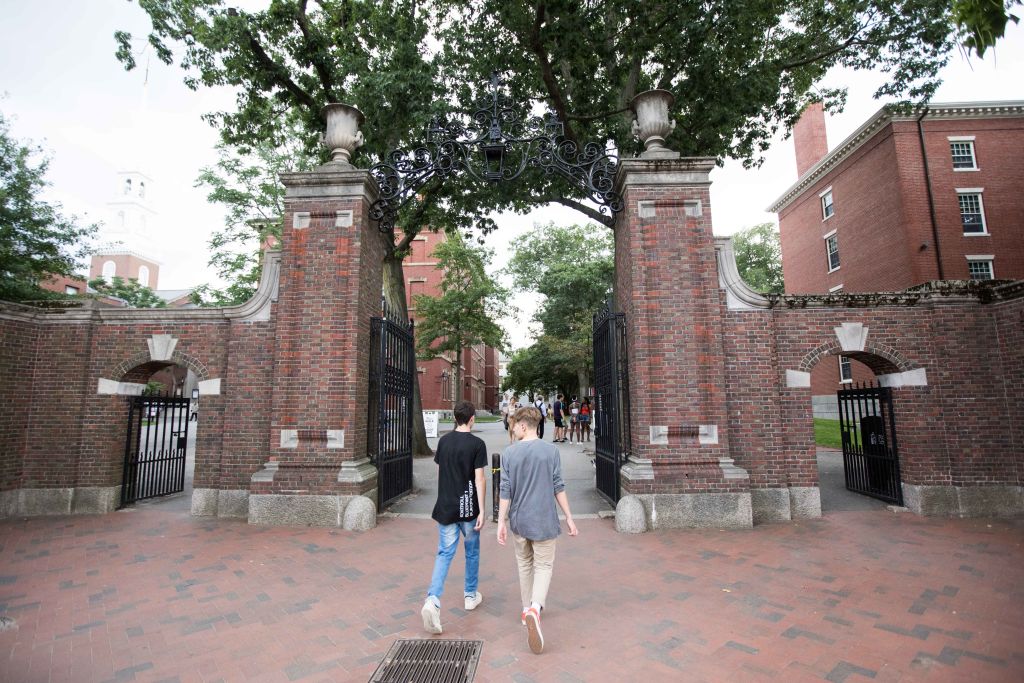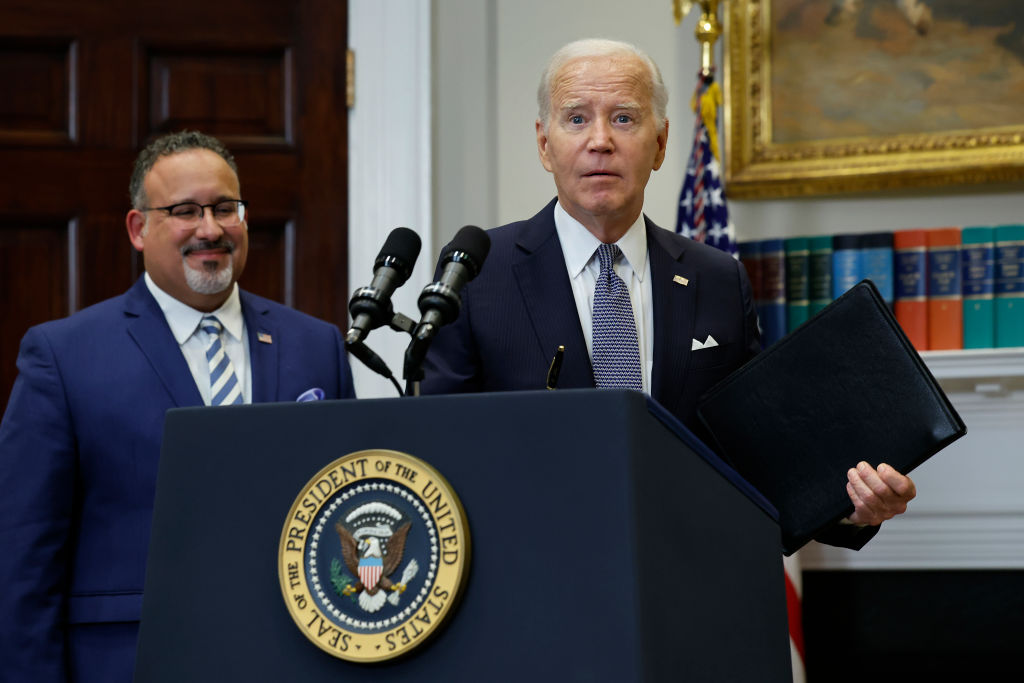ICE tells international students at colleges going fully online to leave the U.S.


A free daily email with the biggest news stories of the day – and the best features from TheWeek.com
You are now subscribed
Your newsletter sign-up was successful
American colleges' pandemic learning decisions are going to have big consequences for international students.
Colleges are starting to roll out their plans for how they'll reopen in the fall, with some announcing all their classes will be taught fully remote as the COVID-19 threat lingers. But the thousands of students from outside the U.S. who go to those newly remote schools won't be able to stay in the states, Immigration and Customs Enforcement announced Monday.
To attend college, high school, or any other learning program and live in the U.S. without pursuing citizenship, international students need an F or M visa. But "nonimmigrant F-1 and M-1 students attending schools operating entirely online may not take a full online course load and remain in the United States," ICE said in a Monday press release. Students will have to consider "transferring to a school with in-person instruction," or "must depart the country" despite the pandemic preventing safe travel anywhere in the world, ICE said. If they don't leave or change their plans, they may be deported.
The Week
Escape your echo chamber. Get the facts behind the news, plus analysis from multiple perspectives.

Sign up for The Week's Free Newsletters
From our morning news briefing to a weekly Good News Newsletter, get the best of The Week delivered directly to your inbox.
From our morning news briefing to a weekly Good News Newsletter, get the best of The Week delivered directly to your inbox.
That decision will likely apply to a big portion of the more than 1 million foreign students who attend colleges in the U.S; More than 5,000 international students attend Harvard University alone, which announced Monday its undergraduate classes were going fully online this fall, for example. Harvard and other schools have offered to let students without good home learning environments return to campus, but considering classes would still be remote no matter where students live, ICE's directive will likely keep international students from even staying in a dorm.
A free daily email with the biggest news stories of the day – and the best features from TheWeek.com
Kathryn is a graduate of Syracuse University, with degrees in magazine journalism and information technology, along with hours to earn another degree after working at SU's independent paper The Daily Orange. She's currently recovering from a horse addiction while living in New York City, and likes to share her extremely dry sense of humor on Twitter.
-
 6 exquisite homes with vast acreage
6 exquisite homes with vast acreageFeature Featuring an off-the-grid contemporary home in New Mexico and lakefront farmhouse in Massachusetts
-
 Film reviews: ‘Wuthering Heights,’ ‘Good Luck, Have Fun, Don’t Die,’ and ‘Sirat’
Film reviews: ‘Wuthering Heights,’ ‘Good Luck, Have Fun, Don’t Die,’ and ‘Sirat’Feature An inconvenient love torments a would-be couple, a gonzo time traveler seeks to save humanity from AI, and a father’s desperate search goes deeply sideways
-
 Political cartoons for February 16
Political cartoons for February 16Cartoons Monday’s political cartoons include President's Day, a valentine from the Epstein files, and more
-
 Penn wipes trans swimmer records in deal with Trump
Penn wipes trans swimmer records in deal with Trumpspeed read The University of Pennsylvania will bar transgender students from its women's sports teams and retroactively strip a trans female swimmer of her titles
-
 Supreme Court may bless church-run charter schools
Supreme Court may bless church-run charter schoolsSpeed Read The case is 'one of the biggest on church and state in a generation'
-
 Harvard sues Trump over frozen grant money
Harvard sues Trump over frozen grant moneySpeed Read The Trump administration withheld $2.2 billion in federal grants and contracts after Harvard rejected its demands
-
 Harvard loses $2.3B after rejecting Trump demands
Harvard loses $2.3B after rejecting Trump demandsspeed read The university denied the Trump administration's request for oversight and internal policy changes
-
 USC under fire for canceling valedictorian speech
USC under fire for canceling valedictorian speechSpeed Read Citing safety concerns, the university canceled a pro-Palestinian student's speech
-
 Florida teachers can 'say gay' under settlement
Florida teachers can 'say gay' under settlementspeed read The state reached a settlement with challengers of the 2022 "Don't Say Gay" education law
-
 Biden administration to forgive $39B in student loan debt for 800K borrowers
Biden administration to forgive $39B in student loan debt for 800K borrowersSpeed Read
-
 Advocacy groups challenge Harvard's legacy admissions policy
Advocacy groups challenge Harvard's legacy admissions policySpeed Read
